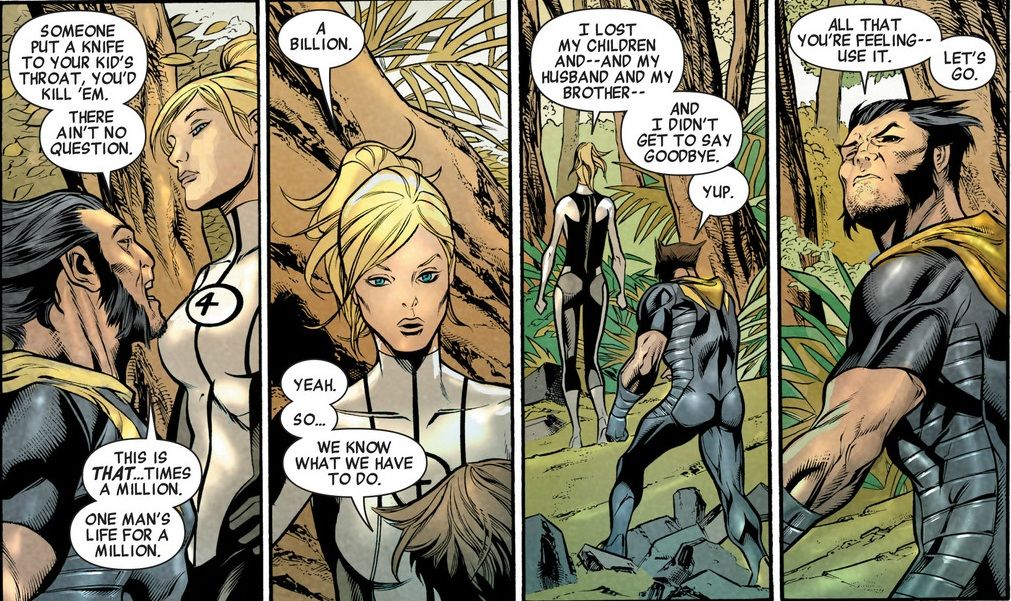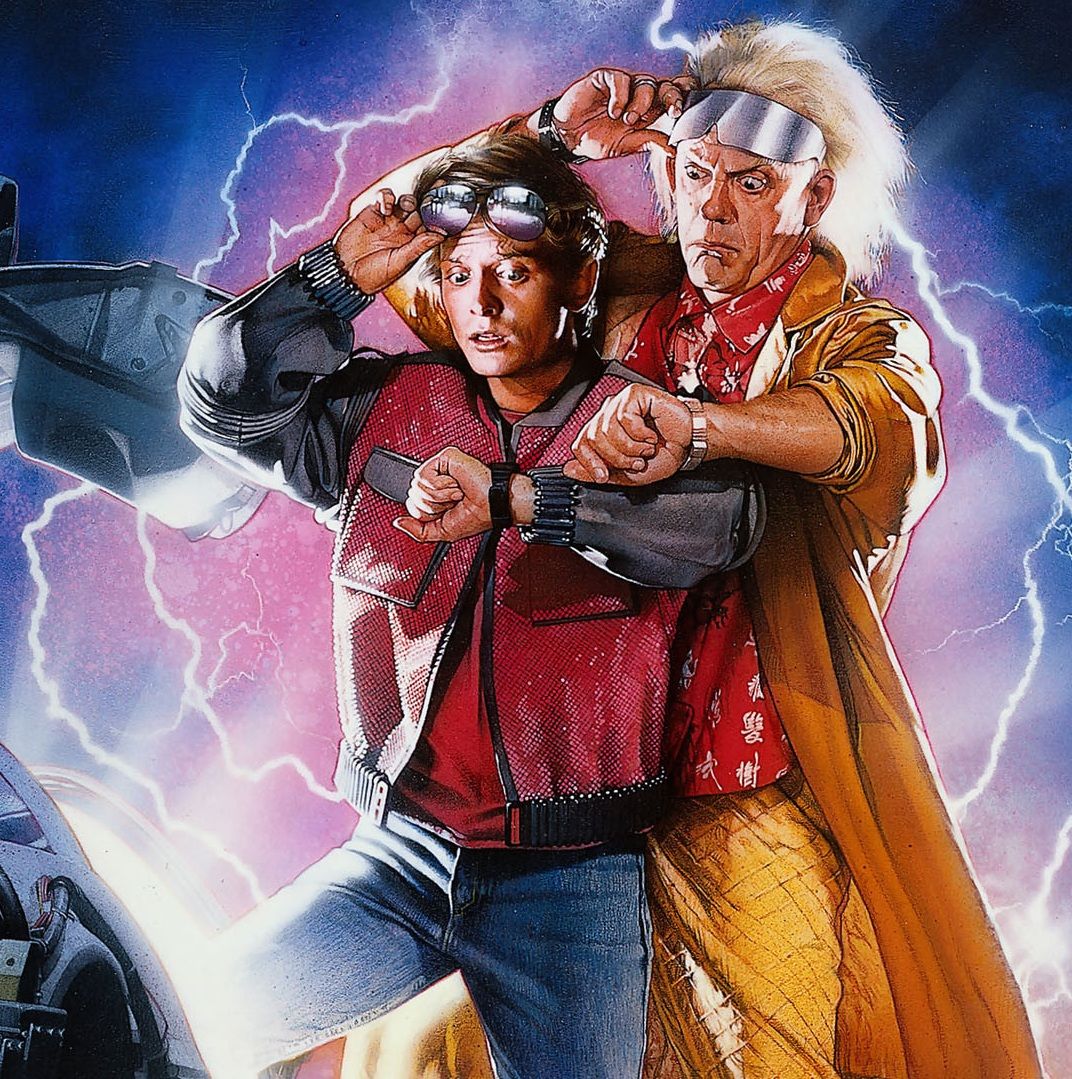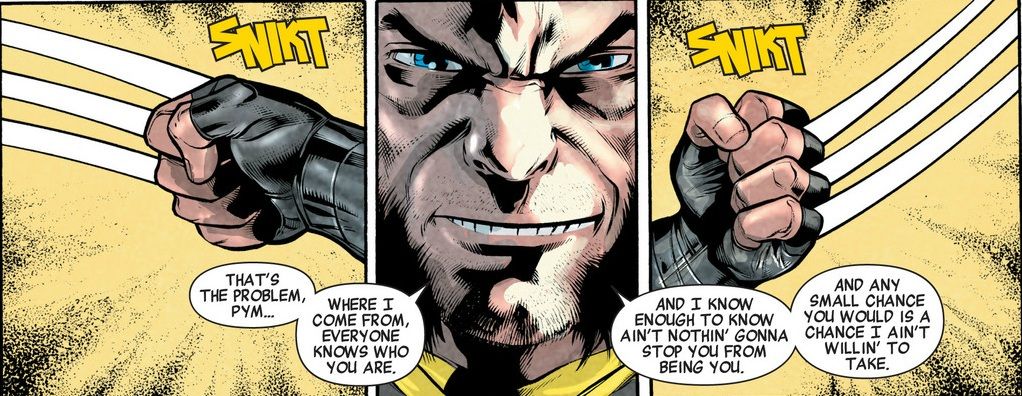Maybe it's because I've been playing Bioshock: Infinite lately, but the choice we make now can lead to infinite worlds of harder choices in the blink of an eye. There's a philosophical weight to certain scientific theories that takes the dryness of numbers and calculations and puts them into context for who we are as human beings. One of science fiction's many functions is to play around with that: Robots can be used as puppets to play out our feelings about our own humanity, the aftermath of post-apocalyptic nightmares can show us how societies work at the broken point, and then there's time travel.
Oh, man, time travel is a huge trope for the deep thinkers! The infamous "go back in time in kill Hitler" question is still debated in classrooms to this day and bandied about online forums. It's huge temptation to think that, by changing a single thing about our past, we could create a brighter future, whether that's saving 11 million people or simply knowing where we put our keys in the morning. It's something we can comfortably wonder about because no one on Earth is capable of actually traveling through time to change anything.
Comics, on the other hand, can and often do. There are time-travel powers, devices, plot elements ... it's a fun topic to explore, and so our heroes jump into the time stream with little time for debate or even a basic plan. This creates the action and adventure we came to read and allows the creative team to test out a variety of scenarios for our entertainment and enlightenment. We debate, but fiction can act.
Does this make comics smarter than us for acting on these ideas or are comics more frustrating for tossing caution to the wind when any of us would pause to understand if we were doing the right thing? This is why Age of Ultron bothers me so much.
WARNING: Big reveal from last week's Age of Ultron #6, so grab your copies and read along!
Quick musing: The cover of the book says "Age of Ultron Book Six" while the indicia and easiest method of referring to this issue remains "Age of Ultron #6." I wonder why the cover title is different and if there's a marketing choice involved.
Anyway, Age of Ultron is still too young in its storytelling to really have a clear picture on what's going on, which is slightly silly considering this book is just shy of being half way over. Or so we think, considering there will be AI and AU books littered around the central story, so who knows? Ultron, evil robot supreme, is finally keeping his word and has returned to Earth to destroy the human race. Or at least, that's what it sure looks like he's doing, with Our Heroes on the ropes and barely surviving. The surviving heroes find Nick Fury, who believes Ultron is attacking them from an advanced future where he's already won, giving him the edge in the battles in the past. Again, this is conjecture because you'd think that would cause some sort of paradox or maybe he's attacking them from an alternate reality rather than the actual 616 universe's future, but again I find myself thinking too deeply over this.
In true Nick Fury fashion, he has a plan for a specific set of heroes armed with a specific set of equipment to travel to a specific point in the future to try to stop Ultron at his source. Sketchy? Sure, but it's the brave thing to do, so Fury and his heroic commandos step onto Doom's Time Platform and forge ahead. Meanwhile, Wolverine just wants to go back into the past to kill Hank Pym.
Which is what he's going to in Age of Ultron #6. Susan Storm is a fantastic (pardon the pun) person to follow after Wolverine; she's had super-science experience with the nature of time and space and she's always been the heart of the Fantastic Four, tempering her family with a strong moral center. Here, she seems weakened and less strong than we've seen her before. Her friends and family have all been killed and the stakes are dire, but it's weird to watch Susan protest from a position of defeat. Wolverine, in fact, tells her to keep feeling the pain of losing her family and use it because his plan really needs that desperation to work.
Wolverine is strangely single-minded on his task; horrified by the death of "millions," he's dead set on killing Hank Pym. He doesn't care about Fury's plan, he doesn't care about the line superheroes shouldn't cross -- none of it matters but ending Pym to end Ultron's attack. I wonder if there's something we haven't seen yet in the story to make this such a personal mission for Logan, but it also could be what we call in the D&D-playing world the "press of the dungeon master's boot against your neck" to move the plot along. His convictions could be justified just as easily as they could be demanded by the narrative to this dire conclusion. Wolverine needs no time for discussion, just emotion and that driving desire to act, because this plan needs no logic or thought to come to its conclusion.
They find Hank Pym in his Giant Man days, monologuing over the body of Dragon Man as he clearly explains to the reader his grand designs for creating an artificial intelligence to advance both the human race and his career. Logan arrives at the scene to catch him in the act of discovery and attacks. Susan Storm enters not to stop the action (which she could at a moment's notice), but to witness this act and hesitate over the justice of killing the man who will create Ultron. In the end, she lightly hides her face from Wolverine's killing blow, and Hank Pym calls out to her for help. Hank, now dead, is discarded as Logan is sure that whatever world they're returning to is better now than the one they left.
This was a grossly disappointing chapter in the Age of Ultron story. None of these actions seemed reasonable, character's motivations felt hollow and I simply cannot wrap my head around why Wolverine would think his idea was his way or the highway. X-Men travel through time constantly, but it has traditionally been for warning the past (in the case of Rachel Grey), to chase down a fugitive that didn't belong (Bishop's original modus operandi) or to bluntly stop Apocalypse, who we can all agree is a purely evil guy. It seems evil to me that a hero would go back in time expressly for the purpose of killing a man before he commits a crime, thereby taking an innocent life. In fact, it seems a little like Bishop's last angle where he was trying to kill a baby. Or it sounds like something Kang the Conqueror would do, to meddle in the time stream to affect changes that would benefit him in the future. This seems like a villainous act.
But Brian Michael Bendis doesn't like to linger on the details of his actions; he simply wants to get the story moving through all the points he wants them to hit to create a compelling work outside the sums of its parts. Secret Invasion ended abruptly with Osborn's sudden intervention, Wanda's madness was a means to the Avenger's end and I had to go look up the end of Siege just to remember what happened (the heroes beat the reigning villains' strongest to finally come out on top and regain the balance of power). How we get there isn't as exciting as being there in a Bendis event and while I hem and haw on my couch about how this story seems awkward, what comes next is the only issue at hand.
Wolverine can act rashly and kill an innocent man for the greater good because he's fictional. He's designed and made to challenge the unknown and act however the story dictates. We as readers have the luxury of debate and philosophy to talk about what these acts mean and weigh them against our own moral compass. Comics need to outpace us in act and deed and the only thing that can tell us who is right in the end is .



